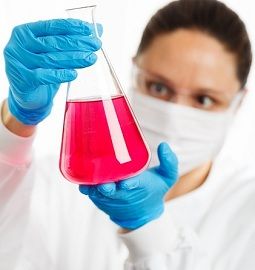How Can Substances in a Compound Be Separated
 The objects surrounding us are created out of affair, and it is present in three forms, i.e. element, compound and mixture. Chemistry is that co-operative of science which deals with these three forms. Elements allude to those substances that can't exist split into simpler substances. The compound is the chemical combination of elements, bonded together in specific proportion. The mixture is the physical combination of substances, bonded together in whatsoever proportion.
The objects surrounding us are created out of affair, and it is present in three forms, i.e. element, compound and mixture. Chemistry is that co-operative of science which deals with these three forms. Elements allude to those substances that can't exist split into simpler substances. The compound is the chemical combination of elements, bonded together in specific proportion. The mixture is the physical combination of substances, bonded together in whatsoever proportion.
While the compound is a pure substance, the mixture is an impure substance. It is difficult for many science students to understand the difference between chemical compound and mixture, so hither we've simplified it for you.
Content: Compound Vs Mixture
- Comparing Chart
- Definition
- Fundamental Differences
- Conclusion
Comparing Nautical chart
| Footing for Comparing | Chemical compound | Mixture |
|---|---|---|
| Meaning | Compound refers to a substance formed by combining two or more than elements chemically. | Mixture implies the intermingling of 2 or more substances into one physically. |
| Nature | Homogeneous | Homogeneous or Heterogeneous |
| Composition | Fixed | Variable |
| Substance | Pure | Impure |
| Backdrop | Constituents lose their original belongings. | Constituents keep their original property. |
| New substance | New substance is formed. | No new substance is formed. |
| Separation | By chemical or electro-chemical methods. | By physical methods. |
| Melting and humid point | Defined | Not divers |
Definition of Compound
Chemical compound ways a substance formed as a blend of various elements chemically in a certain proportion, by weight. It is entirely new substance, which possesses properties different from that of its constituent substances. For example – Water, salt, carbon dioxide, sodium chloride, etc.
The compound is the unification of various elements so that the atoms present in the elements are clasped together by the chemic bail, which cannot be hands split. Bonds are created out of sharing of electrons amongst atoms. So, there are dissimilar types of bonds:
- Covalent bond: A chemical bail in which commutation of a pair of electrons between atoms takes identify, is known as a molecular bond or covalent bond.
- Ionic bond: A chemical bail, wherein whole sole transmission of valence electrons between atoms takes identify is called the ionic bond.
- Metallic bond: Bail occurring as a outcome of electrostatic attraction between metal ions and conduction electrons.
Definition of Mixture
When 2 or more than substances are put together, in any ratio such that no chemic reaction takes place, the material comes out, is a mixture. For example – Sand and h2o, carbohydrate and salt, air, etc.
In a mixture, the properties of the components are retained even subsequently they are mixed, as a solution, suspension and colloids. The combination should be capable of being separated dorsum to normal through physical ways. These are made upward of a diverse range of molecules which are arranged in two ways:
- Homogeneous mixture: A compatible mixture, wherein the constituents cannot be distinguished easily by way of simple ascertainment.
- Heterogeneous mixture: A mixture in which ingredients are of divergence shape, size or state and are easily distinguished through elementary observation.
Key Differences Compound and Mixture
The difference between compound and mixture can be fatigued clearly on the following grounds:
- The chemical compound is used to hateful a substance, created by combining two or more than two substances chemically in a certain ratio by weight. The mixture is described as a substance formed as a result of intermingling two or more than substances into one, physically.
- Compounds are always homogeneous, whereas mixtures can be homogeneous or heterogeneous.
- In a compound, the ingredients are present in a definite proportion. On the contrary, the constituents are present in a variable proportion in a mixture.
- The chemical compound is a pure substance, which contains simply one kind of molecule. As against this, a mixture is an impure substance which contains various types of molecules.
- The properties of a compound are identical to the backdrop of its ingredients. Unlike mixture, wherein the backdrop of ingredients and the mixture are aforementioned.
- The compound, results in the making of the new substance, while mixture does not pb to the creation of new substance.
- The constituents of a compound tin can be separated only past chemic or electro-chemical reactions. Conversely, the components of the mixture can be bifurcated by physical methods.
- Compounds are boiled or melted at a definite temperature. On the other manus, mixtures, do not have a fixed melting and boiling point.
Conclusion
To sum up, nosotros can say that compound is an element, which combines ii substances that requite birth to a new substance, having different attributes. On the flip side, the mixture is nothing but a elementary amalgamation of two substances, in which the substances possess their individual attributes.
antonconferverd57.blogspot.com
Source: https://keydifferences.com/difference-between-compound-and-mixture.html